vue怎么调用谷歌授权登录获取用户通讯录
这篇文章主要讲解了“vue怎么调用谷歌授权登录获取用户通讯录”,文中的讲解内容简单清晰,易于学习与理解,下面请大家跟着小编的思路慢慢深入,一起来研究和学习“vue怎么调用谷歌授权登录获取用户通讯录”吧!
调用谷歌授权,获取用户通讯录信息
业务背景
业务端要求,用户本人填写信息,推荐到朋友,要求可以导出用户谷歌邮箱的通讯录,让用户选择,并且回显到页面 ##步骤
在谷歌开发者平台 , 创建一个项目,我的理解是,我们的页面就是这个项目,要由我们的项目,对谷歌发起授权请求,就类似微信小程序,向官方发起授权,请求昵称和头像的这个场景,所以,后面我们的这个项目也要通过谷歌的审核。
来到api服务
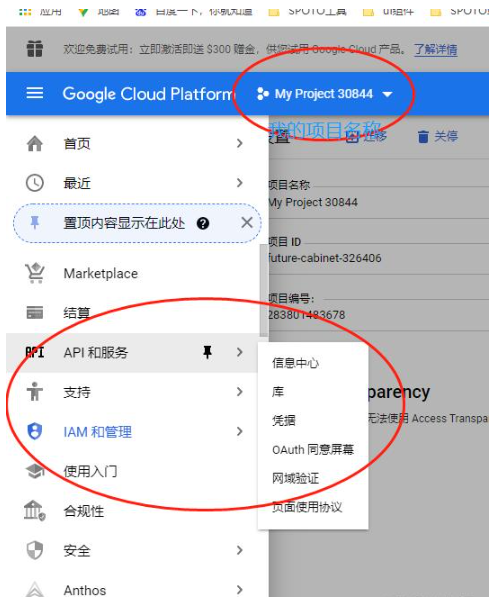
这时候就到了我们这个项目的管理后台
然后要创建一个用户凭据,拿到我们项目的id和key
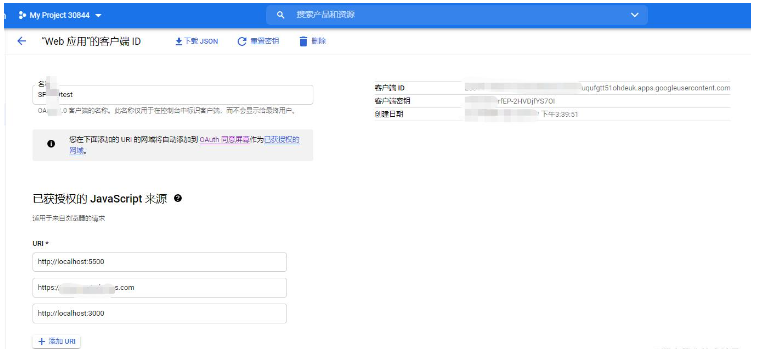
配置下面的域名,也就是让谷歌知道,用户从哪个域名发起请求事合理的,可以用本地localhost进行测试。不能用局域网IP
然后在API库中,选择我们要用的API,我的需求是获取通讯录,所以我启用了people API
在API库里,都会有用法和说明,我是自己去他的git上拉取的,看了下代码流程,然后自己改动,git上的代码很简洁
OAuth 同意屏幕 就是我们的应用在授权时,会跳出如下的界面
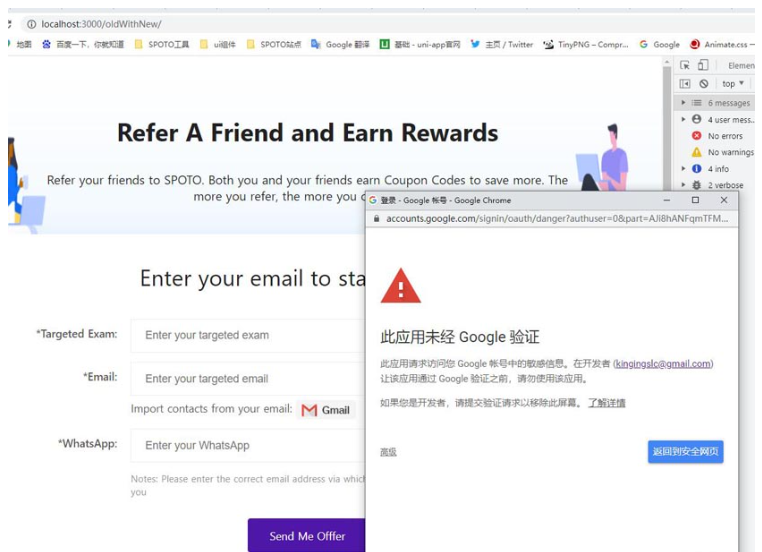
我的理解就是这个屏幕就是同意屏幕,如果我们的应用没通过谷歌的验证,他就会提示我们的应用不安全。
要想通过,这边有流程官方介绍
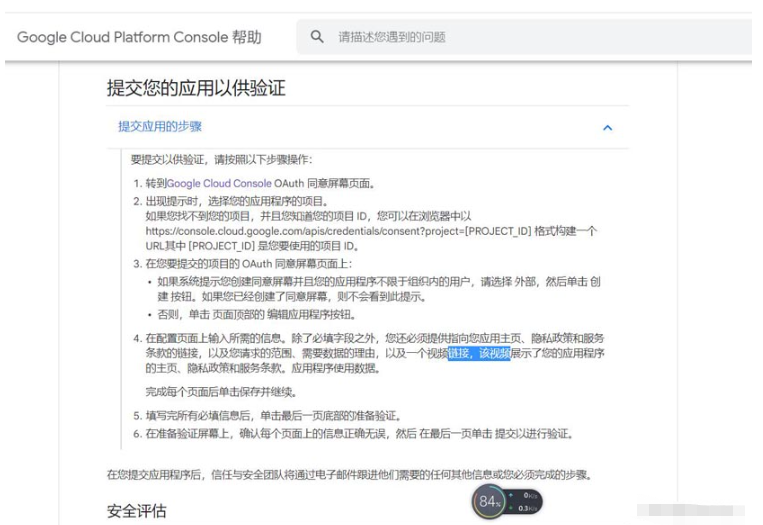
我开发的时候,只是发布到正式了,没通过就是了。在开发环境没问题。
然后就能拿到数据了。 全部的代码
// 初始化谷歌授权登录
initClient() {
// Client ID and API key from the Developer Console
let CLIENT_ID =
'你申请的ID',
API_KEY = '你申请的密码',
// Array of API discovery doc URLs for APIs used by the quickstart
DISCOVERY_DOCS = [
'https://www.googleapis.com/discovery/v1/apis/people/v1/rest',
],
// Authorization scopes required by the API; multiple scopes can be
// included, separated by spaces.
SCOPES = 'https://www.googleapis.com/auth/contacts.readonly',
authorizeButton = document.getElementById('authorize_button'),
that = this
gapi.client
.init({
// apiKey: API_KEY,
clientId: CLIENT_ID,
discoveryDocs: DISCOVERY_DOCS,
scope: SCOPES,
})
.then(
function () {
console.log('谷歌登录初始化成功')
// Listen for sign-in state changes.
gapi.auth3
.getAuthInstance()
.isSignedIn.listen(that.updateSigninStatus)
// Handle the initial sign-in state.
// that.updateSigninStatus(
// gapi.auth3.getAuthInstance().isSignedIn.get()
// )
authorizeButton.onclick = that.handleAuthClick
},
function (error) {
console.log(error)
// appendPre(JSON.stringify(error, null, 2))
}
)
},
/**
* Called when the signed in status changes, to update the UI
* appropriately. After a sign-in, the API is called.
*/
updateSigninStatus(isSignedIn) {
// 是否登录
if (isSignedIn) {
console.log('已登录')
this.listConnectionNames()
} else {
console.log('未登录')
}
},
/**
* Sign in the user upon button click.
*/
handleAuthClick() {
// 是否登录
let flag = gapi.auth3.getAuthInstance().isSignedIn.get()
if (flag) {
// 如果已经登录,就直接弹出窗口
this.listConnectionNames()
} else {
// 未登录就调用出登录授权
gapi.auth3.getAuthInstance().signIn()
}
},
/**
* Sign out the user upon button click.
*/
handleSignoutClick(event) {
gapi.auth3.getAuthInstance().signOut()
},
listConnectionNames() {
let peopleMsg = [],
that = this
gapi.client.people.people.connections
.list({
resourceName: 'people/me',
pageSize: 100,
personFields: 'names,emailAddresses',
})
.then(function (response) {
var connections = response.result.connections
if (connections.length > 0) {
for (let i = 0; i < connections.length; i++) {
var person = connections[i]
if (person.names && person.emailAddresses) {
let obj = {
name: person.names[0].displayName,
email: person.emailAddresses[0].value,
id: i,
}
peopleMsg.push(obj)
}
}
} else {
that.$message({
message: 'No connections found.',
type: 'warning',
})
}
that.peopleMsg = peopleMsg
that.popDialog(peopleMsg)
})
.catch((err) => {
console.log(err)
})
},
// 在mounted的时候初始化一下窗口
mounted() {
// 谷歌登录授权初始化
gapi.load('client:auth3', that.initClient)
},
感谢各位的阅读,以上就是“vue怎么调用谷歌授权登录获取用户通讯录”的内容了,经过本文的学习后,相信大家对vue怎么调用谷歌授权登录获取用户通讯录这一问题有了更深刻的体会,具体使用情况还需要大家实践验证。这里是蜗牛博客,小编将为大家推送更多相关知识点的文章,欢迎关注!
免责声明:本站发布的内容(图片、视频和文字)以原创、转载和分享为主,文章观点不代表本网站立场,如果涉及侵权请联系站长邮箱:niceseo99@gmail.com进行举报,并提供相关证据,一经查实,将立刻删除涉嫌侵权内容。















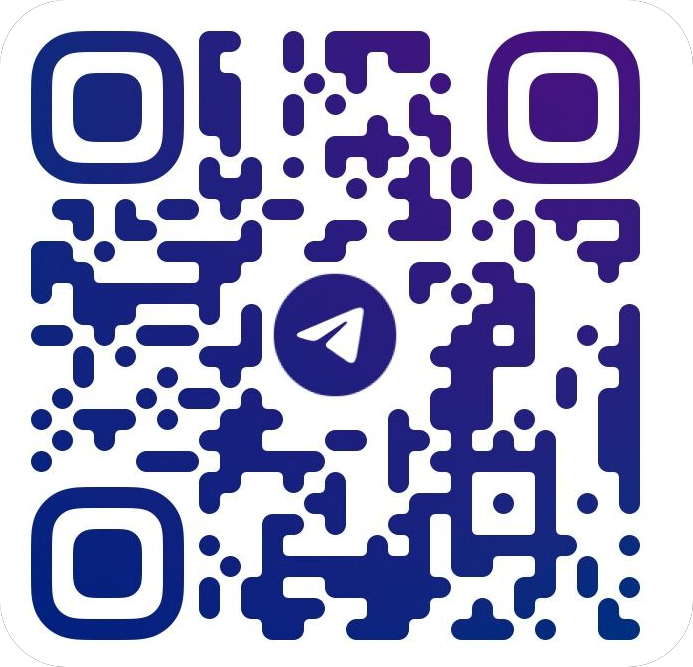
评论